Why Every Employee Wants Stock Options
By: Mitchell Kopelman, CPA, Habif, Arogeti & Wynne, LLP
Certified Public Accountants and Business Advisors
Why does every employee want stock options? Why do companies want to give out stock options?
The answer to both of these questions is simple, receiving and granting stock options can be easy. Stock options are a term most people who have worked for a technology company understand.
A stock option is defined as the right to purchase a specified number of shares of stock at specified prices and times. There are two basic types of options granted to employees, non-qualified stock options and qualified, or incentive stock options(ISO’s).
There were some predictions that private companies would slow down the issuance of stock options due to the new accounting rules (FAS 123R), which forced public and private companies to expense the ‘cost’ of stock options. However, due to the broad acceptance of stock options as a compensation vehicle, private companies continue to issue them for a variety of business reasons.
Other types of equity incentives plans commonly offered are:
• Phantom stock or stock appreciation rights – which most employees do not appreciate, as they never receive an actual Stock Certificate, and
• Restricted Stock Grants – when an employer awards an employee stock, with certain restrictions, such as forfeiture of stock if the employee leaves before a specified date.
Remember, do not back date option grants. There are legal, tax and, ethical business reasons not to back date stock options or grants.
LLC and S Corporation Planning
Can an LLC issue options?
LLC’s do not have an exact equivalent of incentive stock options. However, an LLC can:
• Grant options to purchase LLC units to employees, this has similar tax consequences as granting non-qualified stock options;
• Create a corporate member of an LLC and have that corporate member form a stock option plan and issue stock options to employees of the LLC;
• Create a management LLC entity which becomes a member of the operating LLC, then allocate or grant interests in the management LLC to the employees of the operating LLC; and/or
• Form a phantom type equity plan.
Can an S Corporations issue stock options?:
• Yes, an S Corporation can issue stock options just like a C Corporation.
Consider some of these planning ideas when managing a stock option plan for an S Corporation:
• Do not grant options to persons who are not US residents or who can become non-residents in the future. If a non-resident of the US exercises a stock option, your S corporation would become a C Corporation overnight;
• Some companies have provisions in their S corporate stock option plans that only allow for the exercise of the stock option if the company has either a change in control and/or ceases to be an S Corporation.
Do stock options always result in Long Term Capital Gain (LTCG)?
No, most employees end up with ordinary income tax rates upon the sale of a company and payout the vested options.
Most people want to receive stock options to share in the company’s growth. Also, people believe that they will only pay tax at Long Term Capital Gain (LTCG) rates. Currently, this rate is at an all-time low of 15% for federal income tax purposes.
In reality, 90+% of all private companies’ employees never end up with LTCG but, instead, end up with ordinary income treatment of their stock option benefits. Why?
Most people usually exercise and sell their stock options simultaneously in a buy-out situation, or if the company is public it is usually relatively easy to do a simultaneous transaction on any day.
How to secure LTCG with options:
ISO’s
• The only way for someone to achieve LTCG with an ISO is to exercise the ISO at least 12 months before the sale of the company; and
• The sale must have occurred at least 24 months from the granting of the stock option; or
• Most employees are not willing or able to buy the stock of their private technology company employer, unless they know for sure of a deal involving the purchase of the company;
• If an employee has ISO’s, there are two levels of costs involved to exercise the options. First is the actual cost of the option, and second is the fact that the employee will likely be subject to Alternative Minimum Tax on the difference between the fair market value and the strike price when the shares are exercised; and
• Even if people wanted to exercise their options and purchase stock, they can only purchase stock to the extent their options are vested.
Non-qualified Options:
• Exercise the non-qualified stock option at least 12 months before the sale of the company, without concern to the stock grant date.
• If an employee has non-qualified options, there are two levels of costs involved to exercise. First is the actual cost of the option, and second is the fact that the employee is subject to tax on the difference between the fair market value and the strike price when the shares are exercised.
Planning around Restricted Stock or Unit Grants:
• With restricted stock grants, the employee can elect, under Internal Revenue Code Section 83(b), to recognize the value of the stock as income upon receipt. The employee has 30 days to make and file the election with the IRS.
• Rather than an employee purchasing stock, the employee only has to pay taxes on the value of the stock.
• If the employee sells their shares more than one year later, they will achieve LTCG.
• Most people are afraid to pay tax now on a restricted stock grant. People are concerned that they will pay tax today and they may not have anything to show for this risk in the future, they then opt for options instead of a grant when offered.
• Usually restricted stock grants are of common stock. A company could raise capital multiple times and have debt holders too, who all have priority over the common shareholders.
• Employees may not have assets to risk paying the taxes on the value of the restricted equity grant.
• The pitfall of receiving a stock grant and not making the 83(b) tax election can become very costly to the employees. Typically, these shares have restrictions placed on them and the restrictions lapse over time. As the restrictions lapse, the then current fair market value of the equity become taxable as ordinary income. So each month or quarter, depending on the vesting schedule, the employee has to pay taxes on the fair value of the shares that become un-restricted.
An equity grant coupled with and 83(b) tax election is the single best way to secure LTCG treatment upon sale of the company. The upfront tax costs can also be minimized by entering into the transaction early enough in the evolution of a company that a valuation can justify a low price relative to a future exit.
Accounting Issues:
Effective January 1, 2006, companies are required to record an expense on their income statement for the ‘cost’ of stock options. Many employees were concerned whether recording an expense would factor into the decision process of granting equity incentives to employees. Private companies are not overly concerned with the financial statement impact; however, there are a few planning considerations:
• A company can reduce the life of its stock option from 10 years to less, which can have an impact of lowering the cost recorded on the financial statements;
• A company can consider using non-voting common stock to reduce both the value of the strike price and the value of the shares, as well as the accounting expense to be recoded on the income statement of the company.
Conclusion:
When providing for equity participation to your employees, it is important to share the company’s objectives with your advisors. The goals and objectives relate to both key members and other employees of the company. There are a myriad of tax, accounting, audit, and business ramifications to the company and its employees depending on the plan. Whether the plan covers domestic or international employees, there are solutions and various options (pun intended) to achieve a company’s incentive and reward goals.
Key numbers that your CPA-tax advisor, CPA-auditor, attorney and valuation professional will make sure you never forget regardless of which type of equity plan you form are: 83(b), 409A, 59-60, 421, 422, and 123R, just to name a few. Further information is available upon request.
Mitchell Kopelman, CPA and Chair of Technology Practice
Habif, Arogeti & Wynne, LLP’s
Glenridge Highlands Two
5565 Glenridge Connector NE Ste 200
Atlanta, Georgia 30342-1660
404-898-8231
[email=mitchell.kopelman@hawcpa.com]mitchell.kopelman@hawcpa.com[/email]
IRS CIRCULAR 230 DISCLOSURE:
To ensure compliance with requirements imposed by the IRS, we inform you that any U.S. tax advice contained in this communication is not intended or written to be used, and cannot be used, for the purpose of (i) avoiding penalties under the Internal Revenue Code or (ii) promoting, marketing or recommending to another party any transaction or matter addressed herein. Please do not hesitate to contact me, however, if you have any questions regarding this matter.


























